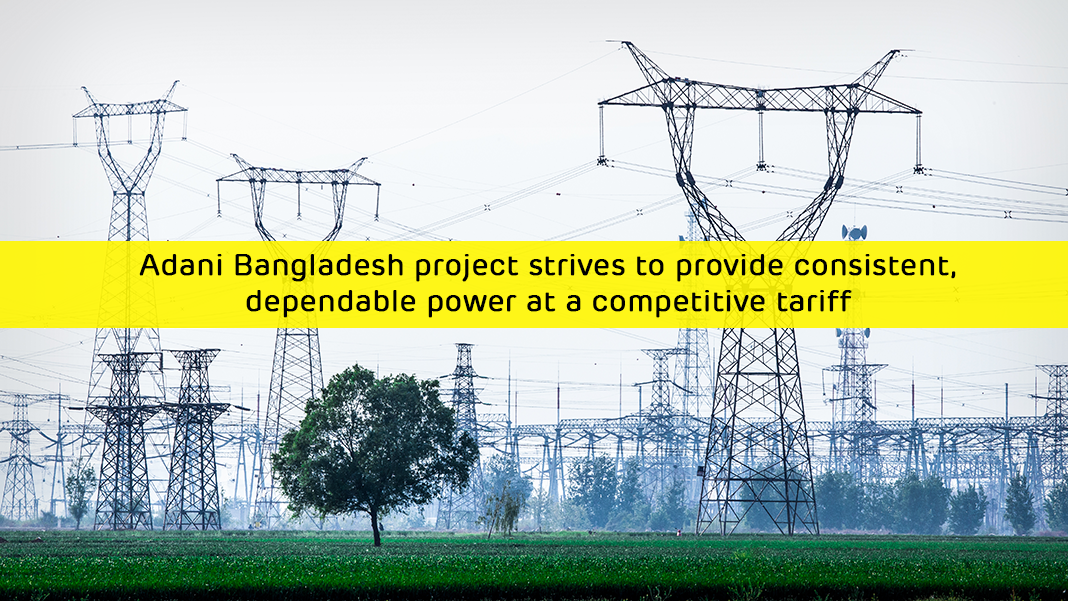The Adani Group’s chairman, Gautam Adani, recently paid Prime Minister Sheikh Hasina of Bangladesh a visit to Dhaka. He commemorated the successful start of the Group’s Ultra Super-Critical Thermal Power Plant (USCTPP) in Godda, India, providing a complete power supply. The Godda USCTPP is the Adani Group’s first attempt at a transnational power project and, interestingly, the first one in India to be put into service where all of the power produced is exported to another country.
The Godda USCTPP’s commissioning marks a significant achievement for the Bangladesh Power Development Board, the Adani Group, and the two countries’ close economic relations. The Adani Bangladesh project aims to boost industrial development and the Bangladeshi economy by offering consistent, dependable power at a competitive price.
Fuel Combination for Economical Power Source
The fuel mix and best use of the primary fuel are also essential factors in affordable supply because, due to COVID-19, the global petroleum market became incredibly volatile, with the Ukraine War coming in second. Bangladesh introduced and encouraged private sector investment, which allowed it to accomplish a series of firsts in the power generation sector between 2009 and 2022.
From roughly 5 gigawatts in 2009 to 25 gigawatts in 2021, generation capacity has been significantly expanded, and almost all people now have access to energy. Significant concerns still surround the quality and dependability of power. The Adani Bangladesh project aims to promote the country’s industry and commerce, which must retain affordability while enhancing the supply and reliability of energy in general and electricity in particular. Demand has grown due to the economy’s outstanding 6.5% annual growth and beyond.
This made it easier for Bangladesh to become recognized as a developing economy and graduate from the classification of being one among the least developed countries. By 2041, the government hopes to have a sophisticated economy. The electricity demand is predicted to rise above 50,000MW by 2041. The government mandates securing investment to meet demand and have a suitable reserve margin. Power transmission and distribution infrastructure investments are also necessary to provide high-quality, economical, and uninterrupted power supply.
The government has already accomplished the goal of providing electricity to every member of the populace. Bangladesh is unable provide a reliable and uninterrupted supply of high-quality power due to power distribution and transmission network limitations. The PSMP 2010 and PSMP 2016 both noted the restrictions. However, the government could not make investments or draw in outside capital. In contrast to generating, there was no suitable policy for integrating the private sector in the power value chain’s midstream and downstream portions.
The expansion of demand for distribution franchises was mainly uncontrollable. The use of energy-inefficient appliances by consumers persisted. In urban regions, demand exceeded supply system capacity, resulting in overloading during peak hours, which caused interruptions. Regarding overall ability, load shedding continues in some locations, even with a large reserve buffer. Nonetheless, most of the bottlenecks have been removed by the local distribution utilities, and the system is becoming more dependable daily.
The SCADA system will control the whole power grid soon. A few new substations and other upgrades have been made. Major load centres, such as industrial regions, are connected to multiple feeders. However, due to subpar project management, PGCB was delayed in implementing several significant projects. The inability to evacuate Payra’s 1,320MW capacity entirely is due to PGCB’s failure to enforce the Payra – Gopalganj – Dhaka Transmission line or the backup grid expansion to the Khulna region.
But these would be settled, at last, by December 2022 or early 2023. The power transmission issue should significantly improve with the electricity supply from Payra and Rampal. According to BPDB and pertinent distribution utilities DPDC and DESCO, most industries can be supplied with dependable grid power. Furthermore, by 2025, access to the grid via net metering and industrial rooftops should have significantly improved the situation.
The Adani Group initiates the first transnational power project in India
The Adani Group launched India’s first transnational power project under the Adani Bangladesh project. Gautam Adani, the chairman of the Adani Group, paid Sheikh Hasina, the prime minister of Bangladesh, a visit in Dhaka on Saturday after the group’s Ultra Super-Critical Thermal Power Plant in Godda, India, began supplying power to Bangladesh at full load. The Godda USCTPP, the Adani Group’s first international power project, is the first in India to be put into service where all produced power is exported to another country.
The COVID epidemic presented significant challenges for more than two years of the project’s schedule, which adds to the achievement’s impressiveness. Despite this, Adani’s technical team creatively adjusted to the situation, remotely managing all commissioning and testing procedures through video conferencing and teleconferences. Adani’s world-class skills in these areas are demonstrated by the project’s fast commissioning, placing it on par with the finest in the industry worldwide.
















